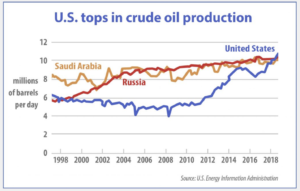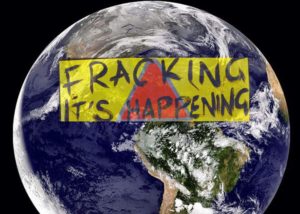by P. Homewood, Mar 3, 2022 in NotaLotofPeopleKnowThat
THE price of gas is through the roof thanks to Vladimir Putin, who has Europe’s energy market by the throat.
Britain is on track to spend a staggering £2BILLION on imported liquefied natural gas from Russia this year as war rages in Ukraine.
Household bills will skyrocket even more than they already were — and could hit £3,000 a year.
This is what happens when you rely on imported foreign energy.
And what makes it more maddening is that we don’t need to do this. We have supplies here.
Under Lancashire and Yorkshire lies one of the best reservoirs of natural gas in the world, known as the Bowland Shale.
At current prices, just ten per cent of this gas is worth several trillion pounds and could keep Britain supplied with gas for five decades.
And we will need gas for decades whatever happens: To back up wind farms, heat homes and make vital chemicals for industry.
…
by P. Homewood, Feb 16, 2022 in NotaLotofPeopleKnowThat
We should find out whether UK shale gas will work – lift the fracking ban and let’s find out.
We do understand that if you’re an activist in a political party then it is necessary to accept some of the argument as handed down from on high. That’s rather what the collective vision of a political party means. But we do wish that such activists would occasionally have a little think about what they’re being asked to swallow. Perhaps taste it for basic logic, that sort of thing.
Take, for example, this insistence that there’s no point in fracking for natural gas because it will take a decade to get anywhere. Peter Franklin repeats this at Conservative Home for example:
…
by Noah Rothman, January 2020, in Commentary
The malady afflicting the country was unmistakable, according to George W. Bush. “America is addicted to oil,” the president observed in his 2006 State of the Union address. This wasn’t just an observation. It was a call to arms. If the U.S. failed to wean itself off foreign oil, the consequences for the domestic economy and U.S. foreign policy would be grave. Doing so would require substantial investments in America’s ethanol industry as well as the development of oil deposits in pristine natural parks and off the nation’s shores.
In 2008, the U.S. produced an average of just 5 million barrels of oil per day—the nadir of domestic energy production since the exploitation of fossil fuels began in the late 19th century. By 2009, the price of West Texas Intermediate crude was approaching $150 per barrel. The U.S., therefore, was obliged to spend over $1 billion per day on oil imports from foreign countries, few of which could be considered models of good governance. America’s thirst for oil propped up abusive governments in places such as the Democratic Republic of Congo, Venezuela, Pakistan, Saudi Arabia, Algeria, Mauritania, and Syria.

by A. Watts, November 21, 2019 in WUWT
Research & Commentary by Tim Benson
A new report prepared by Kleinhenz & Associates for the Ohio Oil and Gas Energy Education Program shows increased oil and natural gas production from hydraulic fracturing (“fracking”) has saved American consumers $1.1 trillion in the decade from 2008 to 2018. This breaks down to more than $900 in annual savings to each American family, or $9,000 in cumulative savings. Continuer la lecture de New Report Says Fracking Saved Americans $1.1 Trillion Over Past Decade →
by P. Homewood, May 26, 2019 in NotaLotofPeopleKnowThat
Taxpayers’ money earmarked to support overseas development has been spent on supporting China’s fracking industry, The Independent can reveal.
The government is required to spend 0.7 per cent of its national income each year on foreign aid.
But even with climate change threatening the developing world with droughts, flooding and heatwaves, millions have been spent on fossil fuel investment abroad over the past two years.
This includes two schemes aiming to “export the UK’s expertise in shale gas regulation” to China, as controversy about new drilling sites rages back in Britain.
https://www.independent.co.uk/news/uk/politics/fracking-china-foreign-aid-shale-gas-climate-change-environment-dfid-funding-promoting-a8637601.html
I won’t bore you with the rest of the story. As you can probably guess, the “Independent” being the “Independent” proceeds to give full coverage to a load of eco cranks, including Christian Aid, who claim that the rapidly changing climate is driving more extreme weather, more acute disasters. (Don’t they know it’s a sin to lie?)
At the end they deign to give a few words to the government spokesperson.
Leaving aside the question why China needs our aid at all, the “Independent” fails to ask the really relevant question of why our government is so keen for us to decarbonise at huge cost, but at the same time thinks it is a good idea to help China develop their natural gas sector?
by Justin Mikulka, March 4, 2019 in Desmog
The U.S. exported a record 3.6 million barrels per day of oil in February. This oil is the result of the American fracking boom — and as a report from Oil Change International recently noted — its continued growth is undermining global efforts to limit climate change. The Energy Information Administration predicts U.S. oil production will increase again in 2019 to record levels, largely driven by fracking in the Permian shale in Texas and New Mexico.
And the U.S. is not alone in trying to maximize oil and gas production. Despite the financial failures of the U.S. fracking industry, international efforts to duplicate the American fracking story are ramping up across the globe.
The CEO of Saudi Arabian state oil company Aramco recently dismissed the idea that global demand for oil will decrease anytime soon and urged the oil industry to “push back on exaggerated theories like peak oil demand.”
But Saudi Aramco also is gearing up for a shopping spree of natural gas assets, including big investments in the U.S., and increasing gas production via fracking in its own shale fields. Aramco is deeply invested in keeping the world hungry for more oil and gas.
Khalid al Falih, Saudi Arabia’s energy minister, told the Financial Times, “Going forward the world is going to be Saudi Aramco’s playground.” But not if other countries frack there first.
China Expanding Fracking Efforts, Testing New Technology
…

by Susann Twidale, November 2, 2018 in Reuters
LONDON (Reuters) – Cuadrilla extracted its first shale gas from its site in northwest England, it said on Friday, after it began fracking operations there just over two weeks ago.
Cuadrilla said the gas flows were small but coming at such an early stage of the project were evidence of the potential of the site.
“This is a good early indication of the gas potential that we have long talked about,” Cuadrilla Chief Executive Francis Egan said in an emailed statement.
…
by A.J. Kondash et al., August 15, 2018 in ScienceAdvances
Abstract
Unconventional oil and gas exploration in the United States has experienced a period of rapid growth, followed by several years of limited production due to falling and low natural gas and oil prices. Throughout this transition, the water use for hydraulic fracturing and wastewater production in major shale gas and oil production regions has increased; from 2011 to 2016, the water use per well increased up to 770%, while flowback and produced water volumes generated within the first year of production increased up to 1440%. The water-use intensity (that is, normalized to the energy production) increased ubiquitously in all U.S. shale basins during this transition period. The steady increase of the water footprint of hydraulic fracturing with time implies that future unconventional oil and gas operations will require larger volumes of water for hydraulic fracturing, which will result in larger produced oil and gas wastewater volumes.
…
by BBC, May 21, 2018
The well has been drilled through the Lower Bowland shale at a depth of approximately 2,700m (8,860 ft) below ground and extends laterally 800m (2,620 ft).
Francis Egan, chief executive officer of Cuadrilla, said the government’s recent announcement underlined the “national importance of shale gas”.
“We are now very close to demonstrating that Lancashire shale gas can be commercially developed in a safe and environmentally responsible manner.”
The firm said drilling on a second horizontal shale gas exploration well at the site is due to be complete soon when it will lodge a second fracking application.
It said it expects to start fracking both wells later this year.
See also: South Africa to speed up shale gas exploration applications
by P. Homewood, April 17, 2018 in NotaLotofPeopleKnowThat
I was at the Mall last weekend, and came across this local anti fracking group holding some sort of a workshop.
One wonders if they realise where the energy they use every day comes from?
(…)
by M. Bastach, March 19, 2018 in TheDailyCaller
U.S. exported more natural gas in 2017 than it imported for the first time in 60 years, according to the Energy Department.
Natural gas production has boomed in recent years, particularly in Pennsylvania and other parts of Appalachia, thanks to hydraulic fracturing or fracking and horizontal drilling. The boom has offset Canadian imports and allowed U.S. companies to ship more fuel abroad.
by Jillian Ambrose, January 9, 2018, in TheTelegraph Business
Cuadrilla will be allowed to test wells in the Sussex countryside until 2021 to see whether the fossil fuel flows from underground limestone rock could be a commercial source of homegrown energy.
The unanimous approval of the county council does not include permission to use the controversial process of hydraulic fracturing, or fracking, but is nonetheless likely to reignite local opposition.
La géologie, une science plus que passionnante … et diverse


